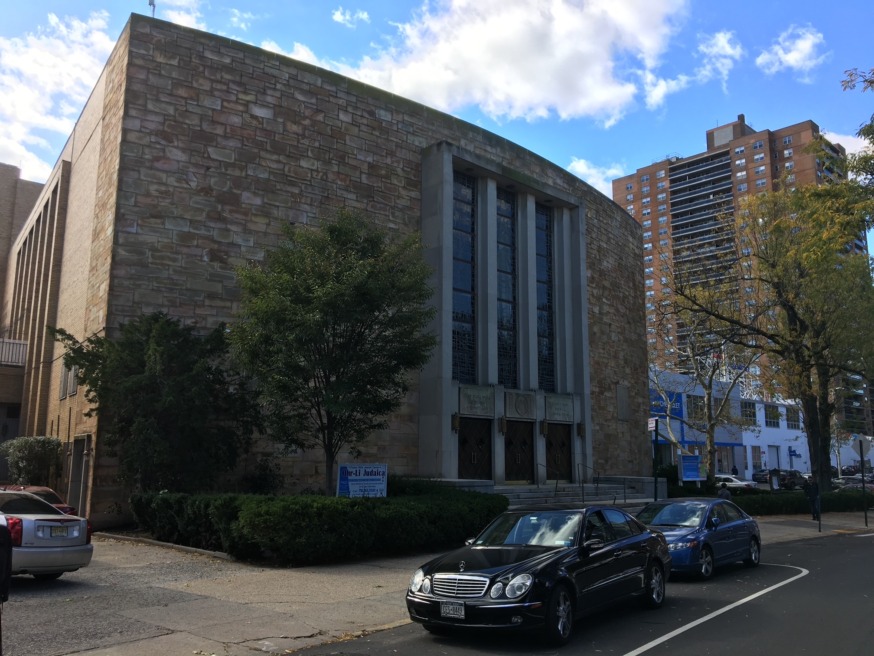
Forest Hills Jewish Center (Photo: Queens Post)
Nov. 2, 2021 By Allie Griffin
The Forest Hills Jewish Center is in the process of being sold to a developer, according to a news report.
Congregants of the center, on Thursday, approved the sale of its 1940s building and plan to relocate the synagogue.
The members voted “overwhelmingly” in favor of the sale, the Jewish Telegraph Agency reported, citing the chair of the congregation’s building committee.
The four-story building, located at 106-06 Queens Blvd., was put on the market for $50 million about a year ago.
The details of the sale have yet to be released. However, a developer will likely demolish the building — which houses a synagogue, classrooms and other services like a senior center run by Selfhelp with specific care for Holocaust survivors — to build a mixed-use development.
The congregation originally planned to demolish the center and redevelop the site itself through a partnership with a real estate firm. Its plan was to build a 10-story mixed-use building that would include space for the center. However, the plans were shelved after the center had a disagreement with the developer in 2019.
The congregation has planned to find a new location for roughly two decades.
The current building — which has housed the Forest Hills Jewish Center since the 1940s — is outdated, according to the congregation’s leaders. It’s not ADA-accessible or updated to fit the current needs and services of the Jewish center, Rabbi Gerald Skolnik, the congregation’s spiritual leader since 1982, told the Jewish Telegraph Agency.
“I have a deep appreciation of the history of this synagogue, but there comes a time when change is what is called for,” Skolnik told the publication. “There is nothing good about this building except for the fact that it has history, but history can’t stand in the way of surviving.”
The congregation will instead search for a new spot in the area. However, its president told the Jewish Telegraph Agency that it may not move out of its current building for as long as two-and-a-half years — especially if it needs to build a new facility.
Skolnik said the story of the Forest Hills Jewish Center does not involve a physical building, but instead the people who make up its membership.
“The story of the Forest Hills Jewish Center is about its congregation,” he said to Jewish Telegraph Agency. “The building needs to change.”
One Comment

Rabbi Skolnick and the members of the board should be ashamed of themselves. The FHJC has been a Queens institution – rather than sell it, they should be working to preserve its legacy.
In addition, they’re selling it without a plan B hoping that in this real estate market, they’ll be able to magically find a new location? Such terrible planning and poor leadership by Rabbi Skolnick.
Rabbi Skilnick is on the brink of retirement and in essence, has taken the congregation with him. Shameful – The late Ben-Zion Boxer, Cantor Groz and Dr. Campeus would undoubtedly oppose this sale